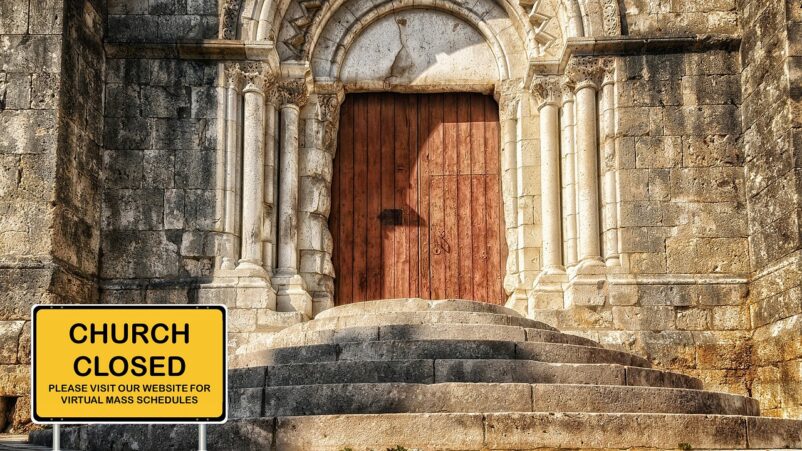Covid-19 restrictions on places of worship caused significant negative impacts on well-being with little evidence of any benefit at all on public health outcomes, according to a new study.
Published in the peer-reviewed journal, the European Economic Review, “When houses of worship go empty: The effects of state restrictions on well-being among religious adherents” used data on over 50,000 individuals between March 2020 and May 2021 in the United States.
The paper found there is “no statistically or economically significant association between restrictions on houses of worship & either COVID-19 infections or deaths regardless of how restrictions are measured”
It also found small effects of restrictions on public health outcomes in some sub-sets of US counties, but even these are “statistically insignificant for infections and only significant at the 10% level for deaths.”
According to David Paton, Professor of Industrial Economics at Nottingham University Business School, this means restrictions on places of worship imposed a high cost yet had little if any benefit.
He says the author notes these findings are “consistent with recent public health research” that similarly finds other NPIs had very little benefit on public health outcomes.
Prof Paton adds: “Politicians who forced Churches to shut (& then imposed other restrictions) need to acknowledge that, on reflection, their policies imposed an unprecedented suspension of the freedom to worship that did not come close to being justified even on narrow public health terms.”
He suggests the UK Covid-19 Inquiry, examining the UK’s pandemic response, might review this research “to ensure governments never make such catastrophic policy errors again.”

















